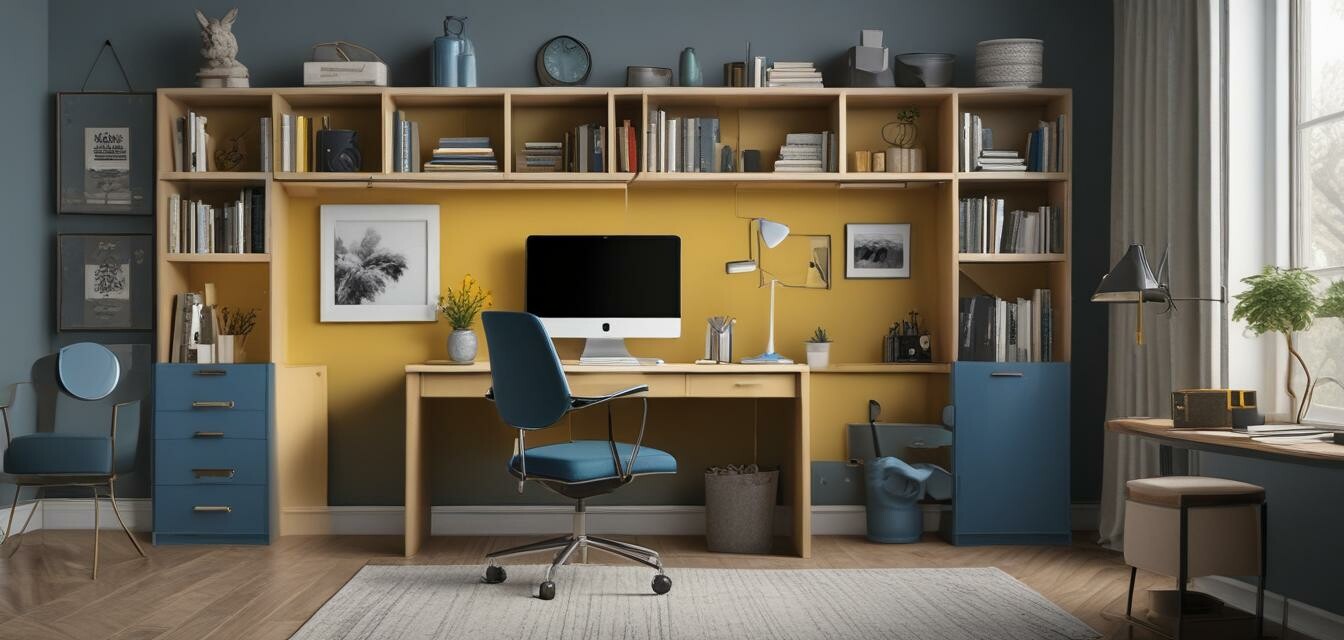
Choosing the right color scheme for your home office
Key Takeaways
- Color can significantly affect productivity and mood.
- Different colors evoke different emotions; choose wisely.
- Consider the amount of natural light when selecting colors.
- Combining colors can create a dynamic workspace.
- Test colors before making your final decision.
Choosing the right color scheme for your home office is vital in creating an environment that enhances productivity and comfort. Whether you're a remote worker, a student, or just need a space to focus, the colors you choose can influence your mood and efficiency. In this guide, we'll explore how to select the best color schemes for your workspace, helping you find the perfect hue that aligns with your personal style and work requirements.
Understanding color psychology
Before diving into color schemes, it’s essential to understand color psychology, which suggests that different colors evoke different feelings and reactions. Here are some common colors and their associated meanings:
| Color | Meaning |
|---|---|
| Blue | Calmness and productivity |
| Yellow | Energy and optimism |
| Green | Balance and refreshment |
| Red | Passion and urgency |
| Gray | Neutrality and professionalism |
Choosing your color scheme
When selecting a color scheme for your home office, consider the following tips:
Tips for Choosing a Color Scheme
- Start with a neutral base: Neutral colors like white, beige, or gray provide a versatile backdrop.
- Add accent colors: Choose two or three accent colors to add vibrancy and personality.
- Consider your furniture: Ensure that your color choices complement your office furniture and accessories.
- Don't overload: Too many colors can be distracting; choose a cohesive palette.
- Test samples: Paint swatches can help visualize how colors look in different lighting.
Popular color schemes for home offices
Let’s explore some popular color schemes that can create the perfect atmosphere for your workspace:
| Color Scheme | Description |
|---|---|
| Cool Blues | Provides a calm and focused environment, perfect for concentration. |
| Earthy Greens | Connects you with nature, creating a refreshing and grounding space. |
| Creative Monochrome | A single color with varying shades brings depth while maintaining simplicity. |
| Bold Contrasts | Combines bright colors for a vibrant and energetic workspace. |
| Soft Neutrals | Utilizes soft shades for a soothing workspace, promoting calmness. |
Evaluating natural light
The amount of natural light in your home office can impact how colors appear. Here's how to consider natural light when choosing colors:
- North-facing rooms: These spaces receive cooler, softer light; warm colors can help brighten the area.
- South-facing rooms: They typically bask in warm, bright light; cooler colors will balance the energetic sunlight.
- East-facing rooms: Get bright light in the morning; soft colors can enhance productivity.
- West-facing rooms: Receive intense sunlight in the afternoon; muted tones work well to soften the glare.
Combining colors effectively
Combining colors can add depth and interest to your home office. Here are some popular combinations:
- Blue and yellow: Energizing while providing a calm backdrop.
- Gray and green: Offers a neutral yet refreshing environment.
- Beige and brown: A warm, earthy combination that promotes comfort.
- Black and white: Timeless and often used for a modern look.
Final thoughts
Your home office should be a reflection of your personal style while supporting your productivity. By understanding color psychology, evaluating your space, and thoughtfully selecting a color scheme, you can create a harmonious environment tailored to your needs.
Explore more resources
For further inspiration, check out our various guides tailored to help you setup your home office efficiently: